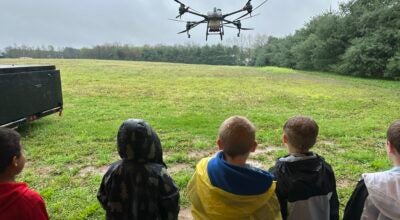Health and Mind: Eye health and safety for children
Published 6:00 pm Saturday, August 13, 2022
|
Getting your Trinity Audio player ready...
|
By Shaundra King
HANDS Supervisor
HANDS is a program in every community in Kentucky to support parents beginning in a family’s pregnancy and lasting up to the child’s second birthday. HANDS provides resources and tools for parents to support them with parenting. HANDS is an early childhood program that serves families in the Clark and Powell Counties. All services are free and voluntary. HANDS provides families with information on having a healthy pregnancy, caring for your child, how to bond with your baby, how to support that child with early experiences in life that supports the child’s lifetime brain development, along with emotional health, and creating safe and healthy homes.
In honor of eye health and safety month, below are some tips and information on how to protect your child’s eyes and promote eye health, beginning in pregnancy and in young children.
Protecting your child’s eyesight begins in pregnancy. Prenatal smoking could damage unborn babies’ eyes, so you can start to care for your little one’s eyes even before they are born.
Ensure smoking cessation and good prenatal care to avoid eye problems before and at the time of birth.
On the road, make sure children are properly secured in baby carriers and child safety seats and that the seat and shoulder belts fit well. Children age 12 and younger should never ride in the front seat. Store loose items in the trunk or secured on the floor, as any loose object can become a dangerous projectile in a crash.
Use safety gates at the top and bottom of stairs. Always pad or cushion sharp corners. Put locks on all cabinets and drawers that kids can reach.
Do not allow your children to play with non-powder rifles, pellet guns or BB guns. They are extremely dangerous and have been reclassified as firearms and removed from toy departments.
Do not allow children anywhere near fireworks, especially bottle rockets. These fireworks pose a serious risk of eye injury and have been banned in several states.
Only purchase age-appropriate toys to prevent injuries.
All chemicals and sprays must be kept out of reach of small children.
Parents and others who provide care and supervision for children need to practice safe use of common items that can cause serious eye injury, such as paper clips, pencils, scissors, bungee cords, wire coat hangers and rubber bands.
To prevent eye injuries, children should wear sports eye protectors made with polycarbonate lenses for baseball, basketball, football, racquet sports, soccer, hockey, lacrosse, and paintball.
Screen time should be less than an hour for kids younger than five years. Older kids should have only an hour of screen time in a day. Minimal screen time can help ensure that the child’s sleep and physical activity are not affected. Screen time should not be before bed. The onset and progression of myopia (short-sightedness) in kids can be prevented by spending more time outdoors. You may encourage children to play outside rather than indoor games or video games. Outdoor activities can be physically beneficial to children.
Finally, regular eye checkups may help determine eyesight problems in kids. Early diagnosis and interventions could help protect vision in most cases with children.






